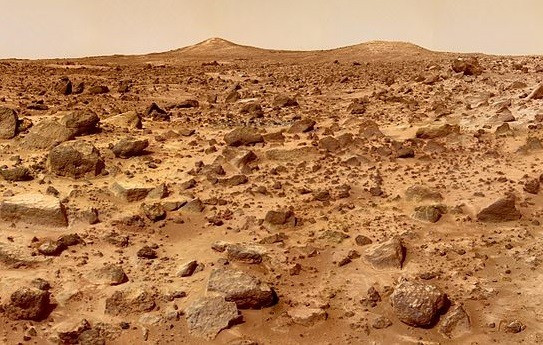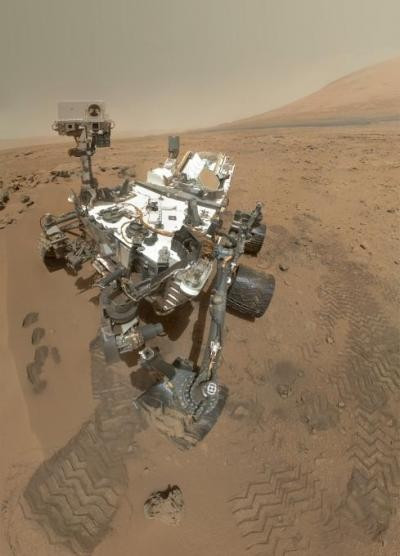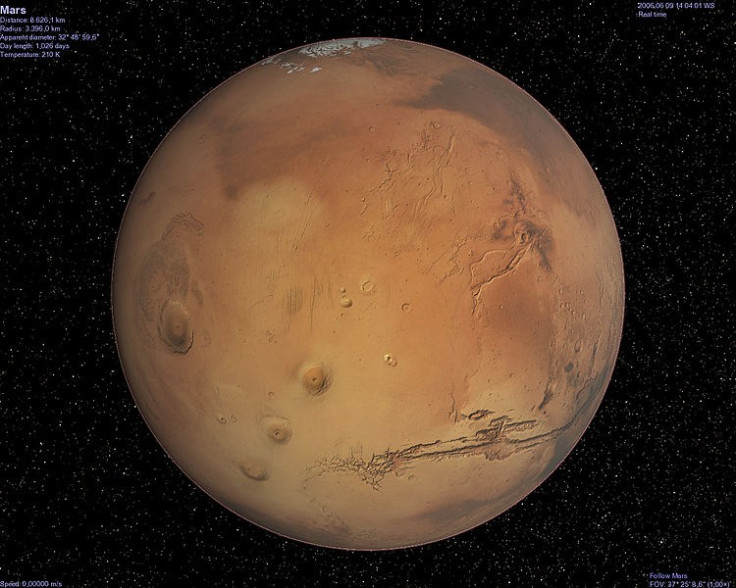Water Found in Mars Soil Offers Hope of Human Exploration

Water has been found in the soil on Mars giving hope for human settlement on the red planet in the future.
The soil was gathered by Nasa's Curiosity rover and analysed on board. Lead author Laurie Leshin, dean of science at the Rensselaer Polytechnic Institute, said: "One of the most exciting results from this very first solid sample ingested by Curiosity is the high percentage of water in the soil.
"About 2% of the soil on the surface of Mars is made up of water, which is a great resource, and interesting scientifically."
When heated, the soil also released carbon dioxide, oxygen and sulphur compounds, the Sample Analysis at Mars (SAM) found. SAM is a laser spectrometer able to identify chemical compounds and their ratios on board Curiosity.

Paul Mahaffy, principal investigator for SAM at Nasa's Goddard Space Flight Centre, said: "By combining analyses of water and other volatiles from SAM with mineralogical, chemical, and geological data from Curiosity's other instruments, we have the most comprehensive information ever obtained on Martian surface fines. These data greatly advance our understanding of surface processes and the action of water on Mars."
Leshin added: "This is the first solid sample that we've analysed with the instruments on Curiosity. It's the very first scoop of stuff that's been fed into the analytical suite. Although this is only the beginning of the story, what we've learned is substantial."
She said the discovery of water in the soil holds implications for Mars explorers: "We now know there should be abundant, easily accessible water on Mars. When we send people, they could scoop up the soil anywhere on the surface, heat it just a bit, and obtain water."
As well as water, SAM also found trace levels of organic compounds, but these were not of Martian origin and probably formed during the heating process. The team believes they will have to continue to delve beneath the surface of Mars to find organic material.

"We find that organics are not likely preserved in surface soils, which are exposed to harsh radiation and oxidants," said Leshin. "We didn't necessarily expect to find organic molecules in the surface fines, and this supports Curiosity's strategy of drilling into rocks to continue the search for organic compounds. Finding samples with a better chance of organic preservation is key."
She added that the results offer an insight into future research.
"Mars has kind of a global layer, a layer of surface soil that has been mixed and distributed by frequent dust storms. So a scoop of this stuff is basically a microscopic Mars rock collection.
"If you mix many grains of it together, you probably have an accurate picture of typical Martian crust. By learning about it in any one place, you're learning about the entire planet."
© Copyright IBTimes 2025. All rights reserved.






















